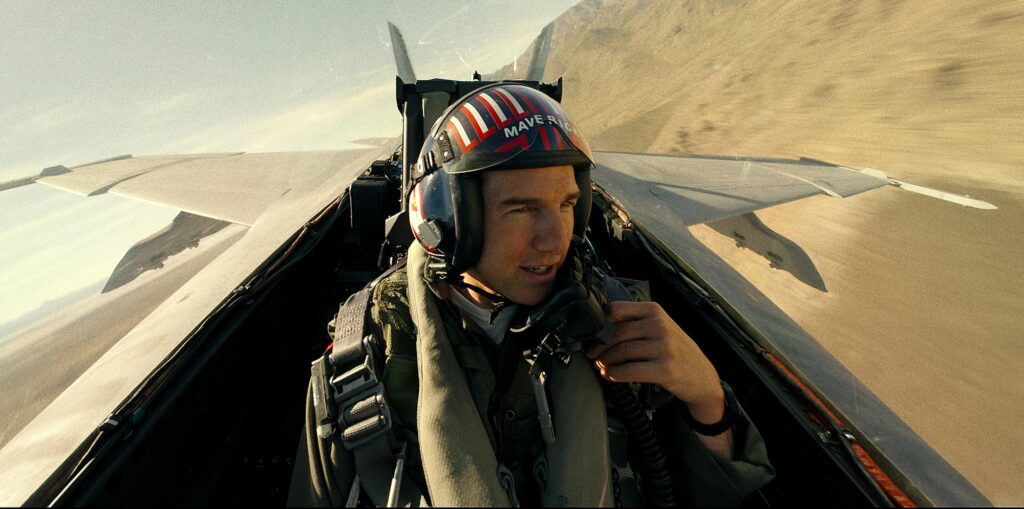Top Gun: Maverick: Bruising Altitude

Ah, the ’80s: that glorious decade of unvarnished patriotism, jubilant synth music, and pop-culture cheese. As artifacts of this ancient era go, Tony Scott’s Top Gun has aged more poorly than most; it now plays as a silly, occasionally diverting genre exercise that doubles as a military recruitment ad, and while it entertains as a tribute to the glistening machismo of Tom Cruise, it also suffers from thin characters and a profoundly stupid story. So when I tell you that Top Gun: Maverick, the 36-years-in-the-making follow-up directed by Joseph Kosinski (from a script credited to Ehren Kruger, Eric Warren Singer, and Christopher McQuarrie), improves on its predecessor in every conceivable way, what I really mean is, it’s not bad.
Honestly, that assessment is perhaps unfair to Kosinski and Cruise, who have approached this legacy assignment with a canny combination of reverence, intelligence, and playfulness. Not content with merely avoiding stupidity, Maverick is often genuinely smart. Its character dynamics are sharp, its plot makes structural (if not geopolitical) sense, and its action is mostly engaging and occasionally electrifying. It’s a pretty good movie that also wrestles with the obligation of being a Top Gun sequel. Read More

